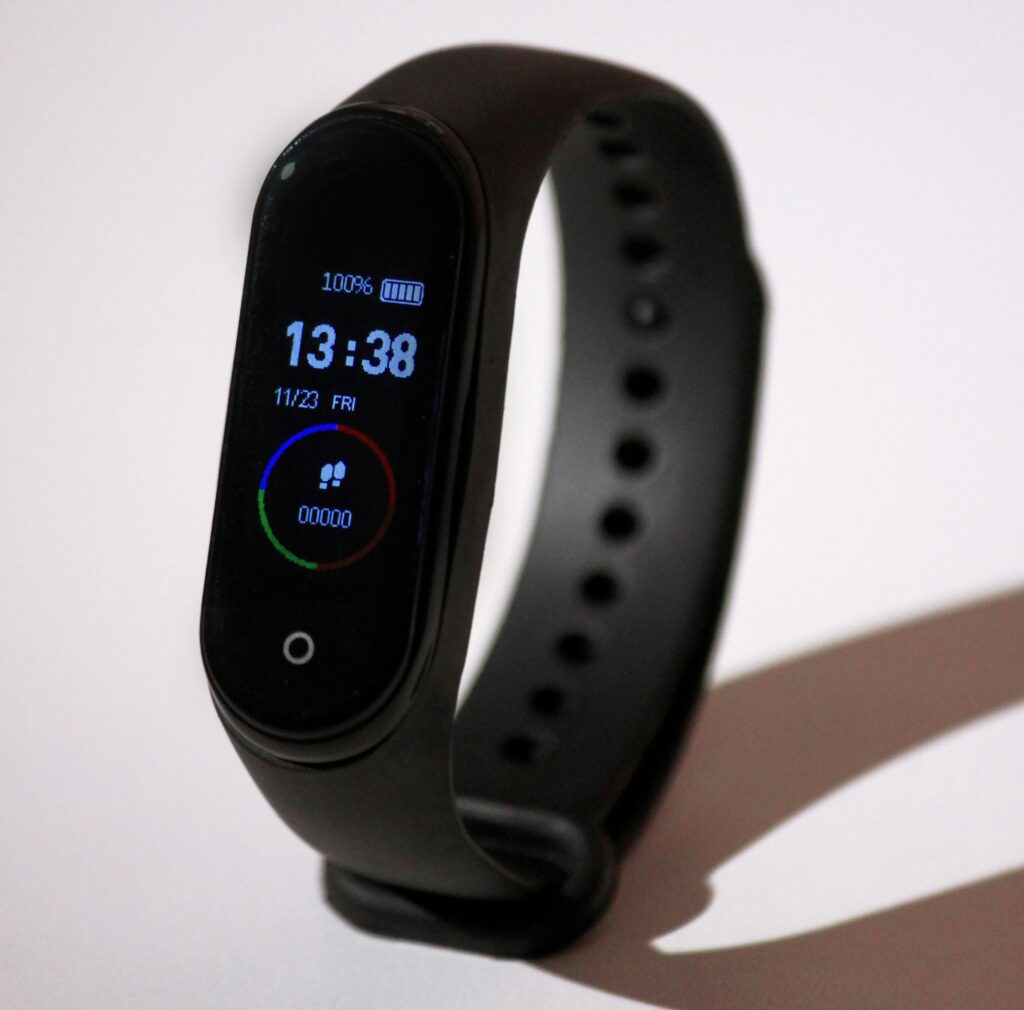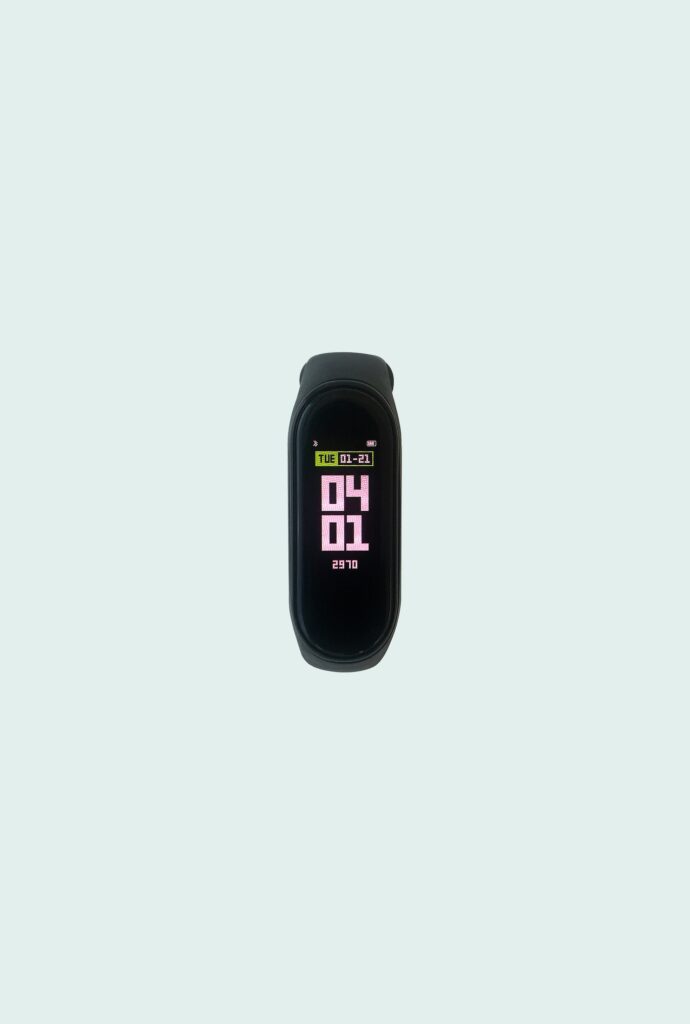The Crazy Ways Wearable Tech Is Secretly Leveling Up Your Health
Thought smart band and fitness trackers were just step counters? Think again. From heart-rate hacks to better sleep, wearable technology might just be your new health BFF.
Tiny Gadget, Big Impact
Alright, picture this.
You’re sitting in class, bored, scrolling through your smart band. It tells you how many steps you’ve taken. Cool, right? But what if I told you that little screen on your wrist is doing way more than counting how often you walk to the vending machine?
That wearable tech—whether it’s a smart band, smart ring, or fitness tracker—is actually learning about your body.
How it moves.
How it sleeps.
When it’s stressed.
When it’s crushing a workout.
And honestly, it might know you better than you know yourself.
Smart fitness devices aren’t just for athletes or health nuts. They’re for anyone who wants to feel better, move smarter, and maybe—just maybe—actually reach their goals without needing a gym membership or personal trainer.
So what does your smart wearable device really do? Let’s dig in.
1. You’ll Start Noticing Stuff You Never Paid Attention To
Ever looked at your step count at the end of the day and realized it barely cracked 2,000? (That’s like… half a mile.)
The first thing fitness trackers and activity trackers do? Make you aware.
- How much you move
- How often you sit
- How long you sleep
- How many calories you’re burning (roughly)
- How stressed your body is
Before wearable fitness trackers, most of us just guessed. Now? You get the cold, hard truth—and it’s often eye-opening.
Think you’re active because you walk to class? Then your step counter watch shows you’ve been sitting 9 hours a day. Yikes.
Why it matters:
You can’t change what you don’t notice. Wearable technology makes your habits visible. That’s where change starts.
2. Your Heart Rate = Real-Time Health Check
Let’s talk about your heart. It’s always beating—but unless something goes wrong, you don’t think much about it.
Smart bands and heart rate monitors do.
They track your pulse 24/7. Which means they can notice:
- A racing heart when you’re resting (stress? illness?)
- A super low rate during sleep (great if you’re fit)
- How quickly you recover after workouts
Some even buzz if something seems off.
Why care?
Because your heart rate tells a whole story:
- Slow recovery = overtraining
- Unexpected spikes = stress
- And trends = insight
Cool bonus:
Devices like the Apple Watch or premium smart bands can even detect irregular rhythms.
That’s not just tech—that’s potential life-saving data from a wearable health monitor.
3. Sleep Tracking: It’s Not Just About Hours
You went to bed at 11, woke up at 7—8 hours, right? Not quite.
Your wearable sleep monitor knows better.
It tracks:
- When you actually fall asleep
- How much time you spend in light, deep, and REM sleep
- How often you wake up (even for a few seconds)
Sleep tracking wearables give you patterns—not guesses. You might discover:
- You sleep better after workouts
- You wake more if you eat late
- Your REM sleep dips on school nights
Wellness wearables help you see connections between your sleep and your day.
Once you notice how much energy you have after better rest, your bedtime habits start to change—on their own.
4. Setting Goals That Don’t Suck
You decide to “get healthy.” You start walking more, eating salads, maybe a YouTube workout. Then motivation fades.
Smart bands step in with reminders, encouragement, and gamified health tracker features.
Set goals like:
- 7,000 steps a day
- Stand up once every hour
- 30 minutes of cardio three times a week
- Sleep by 10:30 on school nights
They celebrate wins with buzzes, animations, and streaks—like a fitness motivation tech buddy on your wrist.
Why it works:
We like winning. And little digital victories from smart health devices feel good.
Before you know it, those micro-habits stack up into real results.
5. It Knows When You’re Stressed (Sometimes Before You Do)
You’re cranky, unfocused, and tense… but not sick. That’s probably stress.
Stress tracking wearables use HRV (heart rate variability) to measure how relaxed or wired you are.
- A high HRV? You’re chill.
- Low? You might be tense, even if you don’t realize it.
Advanced biometric wearables can also detect:
- Sweat levels
- Skin temperature
- Breathing rate
Then your personal health tracker suggests:
- A guided breathing session
- A short walk
- A break from screens
It’s like your wearable wellness tech saying: “Hey, breathe. I got you.”
6. It Gets You Off Your Butt (Literally)
Modern life = sitting. A lot.
We sit in class, gaming, watching Netflix, or scrolling. But our bodies? They were made to move.
Smart wearable devices buzz when you’ve been inactive for too long.
It’s not nagging—it’s nudging.
Benefits of regular movement reminders:
- Reduced brain fog
- Less back pain
- Improved energy
- Better posture
Some even work as posture trackers, reminding you to straighten up when you slouch.
Helpful? Absolutely.
These little nudges from your digital fitness watch help build better habits—one buzz at a time.
7. It’s for Everyone, Not Just Gym Rats
People think wearable fitness assistants are only for elite athletes. Not true.
Even if you:
- Just walk to class
- Want better sleep
- Deal with anxiety or ADHD
- Want to drink more water
…there’s a wearable health device for you.
Some people use smart health gadgets for chronic conditions like asthma or diabetes.
Others just want to feel a little better each day.
That’s where teen fitness wearables shine—they’re made for real people living real lives.
No gym pass required.


How to Pick the Right One (Without Going Broke)
You don’t need a $400 digital fitness watch to get results.
Here’s a cheat sheet:
| Your Goal | Try This | What to Look For |
|---|---|---|
| Move more | Mi Band, Fitbit Inspire | Step counter, reminders |
| Sleep better | Oura Ring, Fitbit Charge | Sleep stages, sleep score |
| Get fit | Apple Watch SE, Garmin Forerunner | Heart rate monitor, workout modes |
| Manage stress | Fitbit Sense, Garmin Venu | HRV tracker, breathing tools |
| Just track basics | Amazfit Band, Xiaomi Band | Budget fitness tracker, long battery |
Pro tip:
Focus on affordable wearables that match your goal—not the hype.
What Makes Smart Band Actually Work?
Here’s the thing:
The smart band doesn’t change you.
You do.
But it helps by:
- Tracking habits when you forget
- Holding you accountable
- Making invisible patterns visible
- Celebrating your progress
It’s like having a smart health assistant, coach, and scientist—all on your wrist.
What Teens Say About Their Smart Band
“I didn’t realize I was only sleeping like 5 hours on school nights until I got a Fitbit. Now I try to go to bed by 11.”
— Sam, 16
“I thought I was active because I skateboard. But I was still sitting 10 hours a day. My watch made me realize I need to move around more throughout the day.”
— Priya, 17
“I have anxiety, and my Apple Watch helps me breathe when I’m feeling overwhelmed. It sounds weird, but it really helps.”
— Leo, 15
Bottom line:
The best wearable tech is the one you actually use—daily, not just once a week.
Smart Band = A Mirror for Your Health
Let’s wrap this up.
Smart bands and other fitness tech don’t magically make you healthier.
But they do show you what’s happening under the hood.
- Your sleep
- Your stress
- Your movement
- Your energy
Once you start noticing that stuff?
You start improving.
Not because you have to—but because you want to.
You don’t need to be a fitness freak.
You just need to be curious.
Your Turn
Got a smart band? How’s it helping you?
Thinking of trying wearable health tools? What’s stopping you?
Drop your story in the comments—or send this to that one friend who keeps asking,
“Wait… how many steps did you get today?”
